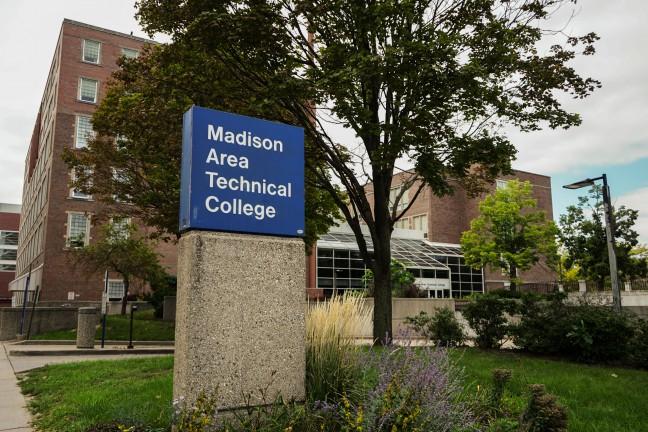When I decided to apply for college, I applied only to the University of Wisconsin. Personally, I wanted the culture of a gigantic campus and the challenge of a world-class institution, and I was lucky enough to be accepted.
Most of us who were accepted here fit my profile: We all had the desire to come to Madison and the grades and high test scores to be accepted. For others, UW was not a fit. Some high school graduates just do not want the "bigness" of UW and prefer a smaller campus. Some want to stay near home for personal reasons, and some just do not have the scores to get in.
In Wisconsin, there are fortunately many options for postsecondary education through the UW System. The other universities and technical colleges do not have the exceedingly high standards of UW: While the average ACT score of a UW student is 28, the average scores at UW-Stevens Point and UW-Parkside are 23 and 20 respectively, according to The Princeton Review. On the other hand, there generally are not huge lecture classes at a university such as UW-Whitewater. We all had to balance what we wanted in a postsecondary education.
One major factor in acceptance to any university is test scores, and many students are just not ready for calculus and trigonometry their first semester. According to a report from the UW System Board of Regents, 14.9 percent of incoming first-year students for the fall 2004 semester required remedial math courses, while 8.1 percent needed a remedial English class within the UW System. On Jan. 25, The Badger Herald reported that less than 1 percent of UW students require a remedial math or English course, though that is because our admission standards are much higher than other UW schools. However, the fact that so many students in Wisconsin are not ready for college-level classes is disconcerting.
According to the Wisconsin State Journal Jan. 22, these remedial classes do help those who need them get on an even playing field when they enter higher-level classes. Some high school students do not take classes seriously until it is too late to fix their GPAs, and some are out of school long enough to forget what they learned in advanced algebra. In these cases, a remedial class is appropriate and needed to ensure that those who want a higher education do succeed.
Overall in Wisconsin, there is a disparity in the level of preparation of those graduating high school, and race is a major factor in testing performance. The Wisconsin's Information Network for Successful Schools, a state-level resource of education statistics, reported between 2005 and 2006, white students scored an average of 22.5 on the ACT statewide. This compares to 20.4 for Asians, 20.0 for Hispanics, and 17.1 for African-Americans. For students in 10th grade, mathematics scores show a similar gap: 30 percent of whites were "advanced" in math compared to only 7 percent of Hispanics and 4 percent of black students.
The statistics show there is a divide between races in terms of school performance. Not every student will do well in high school, and not every student wants to go to UW and study nuclear engineering. Remedial classes in subjects such as English and mathematics can help give those who need extra help the added boost to succeed in college and technical school. UW System spokesperson Dave Giroux told The Badger Herald what matters is how students finish, not how they start. This is true, but how about those students who never have the opportunity to even start because they are not even to the level of a remedial class?
UW is considering adding race as one of many factors to its admissions policy, but UW and the state should look to the reasons why race must be added in the first place. Why do minorities have lower test scores in Wisconsin? Is it a race or a class issue? Why are students at some school districts underperforming? Most importantly, how do we fix such inequality in Wisconsin school districts?
Adding race into the admissions equation may help alleviate racial inequalities at UW, but it does not solve the overall problem of students in elementary, middle and high schools not developing the necessary skills to get a postsecondary education. Remedial classes do help but only to a certain degree. Instead of addressing race and education when a student is 18, UW, the UW System and the state of Wisconsin all need to focus on the fact that too many students in elementary schools are not getting the education every citizen of Wisconsin has a right to receive.
Jeff Carnes ([email protected]) is a senior majoring in linguistics.







